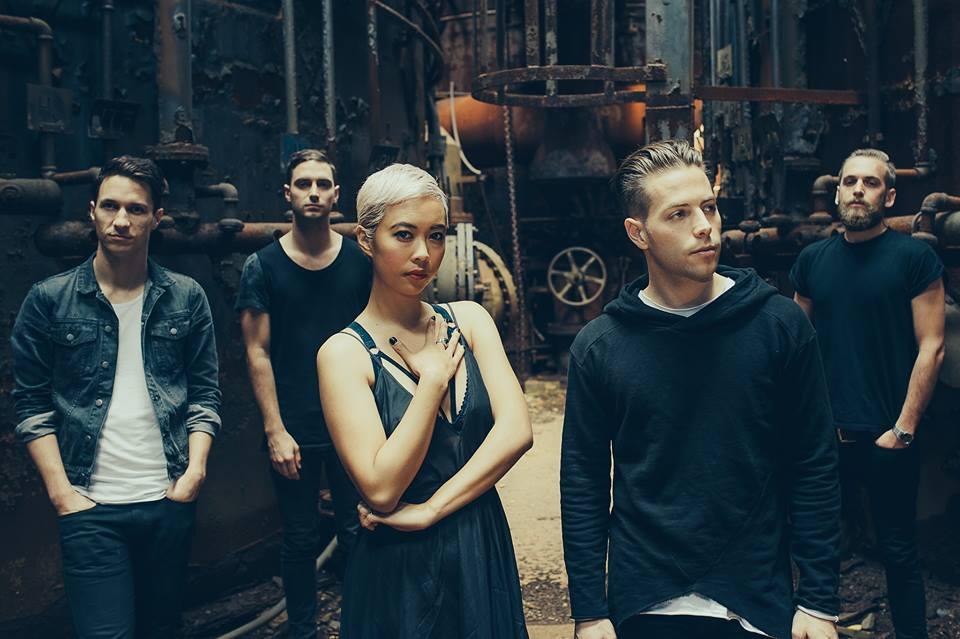 Last week, WQHS got a chance to chat with Thom Powers of The Naked and Famous. Thom and I talked about their new album Simple Forms, visual art, the challenges of streaming services for artists, and being a part of a band that is fronted by a female with an Asian background.
Last week, WQHS got a chance to chat with Thom Powers of The Naked and Famous. Thom and I talked about their new album Simple Forms, visual art, the challenges of streaming services for artists, and being a part of a band that is fronted by a female with an Asian background.
Abi Raymaker: Your latest album Simple Forms features a visual component – all available on YouTube – of lyric videos that feature motifs and imagery to accompany each song. Why did you make that choice?
Thom Powers: I wanted to think up creative ways to release the music outside of regular singles. We did a few lyric videos in the past that helped direct traffic to our YouTube channel, so it seemed like a creative solution to our problem. It was more of a reaction, because once we did the first one for “Higher” we realized that we wanted to do one for every song. We still plan on releasing music videos as well.
AR: For this album, you released it independently, with the help of Cobalt Label Services. Can you talk about that process? What were some of the challenges?
TP: Cobalt is less traditional than a record label – this isn’t a record deal. They help us with some jobs that record labels do, but the financial responsibilities fall to the band. So yeah, we’re kind of independent. It’s exciting, but at the same time, it is incredibly helpful to have a huge corporation that has masses of arms and eyes and funds. There’s a bit of a misconception around how great it is to be independent – oftentimes artists who flippantly complain about record labels are the ones who have luck to thank too, so it can be easier to complain and tell people ‘you don’t need labels’ when you’re doing exceptionally well.
AR: Another challenge that artists face now is the issue of not getting enough revenue from streaming services. Oftentimes, artists will break even on recording costs with streaming or even lose money. Have you dealt with that a lot?
TP: The real thing that absolutely needs to change in the industry is how we’re paid for streaming services; the laws need to get out of the dark ages and away from terms like mechanical royalties, they’re outdated for the digital age. I love Spotify as a service but I just wish artists were getting paid more. They ought to and they should, and we’re getting there, but it’s happening at a snail’s pace. At the same time, Spotify is one of the only rays of light in the music industry, one of the most successful legitimate sources of legal music distribution. It’ll happen with time; no one’s going to stop wanting to listening to music, and artists aren’t going to stop wanting to create it.
AR: Amazingly, despite TNAF’s proficiency with visual art (killer music videos, check out “I Kill Giants”, and their entire visual album for Simple Forms) you say you have no experience at all with visual art.
TP: We just bring in the people we know can make it happen. I always believe in working with professionals in the fields you aren’t a professional in. You wouldn’t approach a director to write a song so I strongly believe we shouldn’t try to direct our own music videos or presume to have the best ideas about what our artwork should look like.
AR: What’s your writing process like?
TP: Usually we just sit down and start mouthing out noises and forming expectations, it’s almost a subconscious process. Often the coherency or the consistency of bringing all your songs together to make an album comes later. Your artistic voice will be there, you just have to find it, and then your music will always sound like you. As for lyrics, that’s usually a private affair. Sometimes the ideas are very of-the-moment and sometimes you need to just sit down and write some real lyrics. I would liken it more to writing prose than writing music.
AR: Are you able to visualize the song in its full orchestration when you first start out, or do you build it piece by piece?
TP: Sometimes I visualize the song as a finished product, but sometimes not. Sometimes I can hear a full soundscape, a full sonic palette, and I head in the direction of trying to achieve it. Other times it’s the exact opposite – it’s experimenting and playing around with noises, and when something sounds good and exciting, I move on and try to add something else. For this album – it was really such a vocal album – we were focusing on the voice leading the song, and the structure rose around it to support and lift up the voice to make it the real feature of each song. We might try a guitar part and see how it sounded, and if it wasn’t working, ditch it. We tried so many instrumental bits. I wish I had a formula but it really depends on the song, so I’m always changing the way I approach things.
AR: I loved your acoustic performance of “Higher” with Alisa at Sofar Sounds New York over the summer. Can we expect any more acoustic stuff from you guys?
TP: Years and years ago, the starting point for us was acoustic stuff just because we had limited instruments. But after figuring out our sonic identity with “Young Blood” and our first album, we didn’t want to go back. There was a bit of resentment from me for the industry – you get asked to do so many acoustic things that are supposed to be opportunities, at radio stations and such, but then if you don’t do it acoustically they won’t let you play. It doesn’t seem fair to the authenticity of our sound to be forced to play acoustically. It’s not that I don’t love acoustic performances in music – some of my favorite artists are Bon Iver and Frightened Rabbit – and I really like hearing acoustic versions of songs. But now I’m really starting to enjoy it more and become more okay with stepping outside of our more bombastic sonic identity, now that it’s been established. Alisa and I have had such a great time doing this alternate acoustic album [for Simple Forms, yet to be released].
AR: How has being from New Zealand influenced your sound?
TP: There was a band called The Mint Chicks, a big favorite of ours when we were on the rise in New Zealand. We actually did a cover of one their songs on the Passive Me, Aggressive You B-sides record. They were the coolest alternative band, they broke through and got on mainstream radio, but still did everything their own way and we were very inspired by them. Getting overseas was a big ambition, something we were proud of and are still proud of. Half of the reason we live in LA is because it’s the ultimate romantic rock n’ roll story – small town band makes it LA – and when I wake up I still feel cool about that. We’re proud of being an international band that immigrated to America, but we do really miss New Zealand, there’s so many beautiful things about it. We go home every Christmas and that will always be my real home, but I do love being an American band.
AR: As an Asian female myself, I really respect and admire Alisa. You don’t see enough Asian females in bands. Have you guys ever faced discrimination for it?
TP: I’ve definitely seen it, but I don’t want to speak for Alisa here. You wonder sometimes whether you don’t fit the mold that people expect, and that causes some disinterest. I’ve seen a lot of up and coming acts where there’s a lot of image selling, and people have more Instagram followers than genuine fans because they have less clothes on. But I would take substance over style any day, and I’m proud of our work. I like to hope we are part of the progress, that people can look back and talk about a group like us being fronted by a female with an Asian background, that would be cool. I think it’s a really important issue in the sphere we’re in. If you think of bands we might be compared to, none of them are female fronted, and none of them are Asian.
—
The Naked and Famous will be at Union Transfer on November 14, touring to promote Simple Forms, available now. Also, be sure to check out their breathtaking visual accompaniment of Simple Forms available on their YouTube channel.
